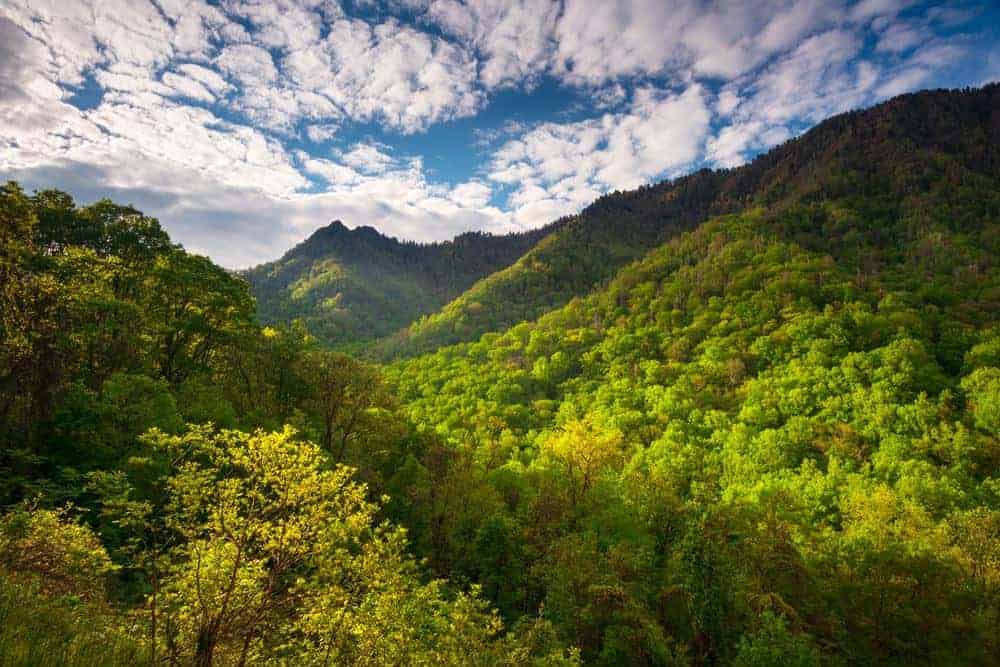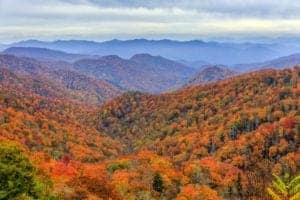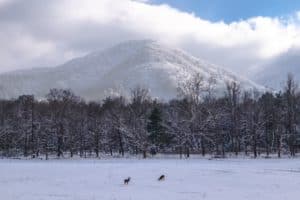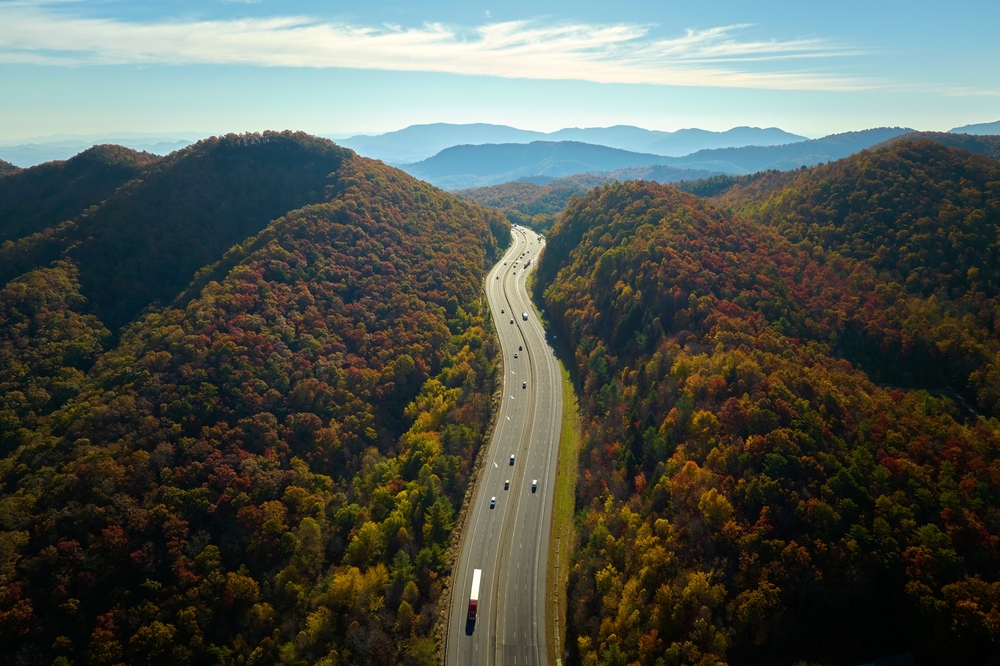
All About the Great Smoky Mountains Weather Throughout the Year
No matter what time of year you want to visit the Smokies, we’re sure “what will the weather be like?” is one of the questions you’re asking! We want to walk you through what the weather in the Great Smoky Mountains National Park is like during the year so you can plan the perfect vacation! Keep reading to find out more about the Great Smoky Mountains weather throughout the year.
Weather in the Smokies
 The Great Smoky Mountains have a variety of activities visitors can enjoy throughout the year due to its moderate climate. People want to explore the trails through the national park or maybe enjoy a scenic drive, and you want to be prepared when it comes to weather conditions in the mountains.
The Great Smoky Mountains have a variety of activities visitors can enjoy throughout the year due to its moderate climate. People want to explore the trails through the national park or maybe enjoy a scenic drive, and you want to be prepared when it comes to weather conditions in the mountains.
One thing you should keep in mind is that elevation will drastically affect local weather. The elevations in the Great Smoky Mountains range from 800 feet to over 6,000 feet. The lower elevations can be significantly warmer compared to the higher elevations, and visitors should keep in mind that temperatures can easily vary from 10 to 20 degrees Fahrenheit.
Great Smoky Mountains Weather by Month
If you want to see what the average temperature looks like in the Great Smoky Mountains, check out this table:
| Month | Average Low | Average High |
| January | 20 | 43 |
| February | 22 | 47 |
| March | 28 | 56 |
| April | 37 | 57 |
| May | 45 | 71 |
| June | 52 | 77 |
| July | 55 | 80 |
| August | 55 | 79 |
| September | 50 | 74 |
| October | 38 | 65 |
| November | 29 | 55 |
| December | 23 | 48 |
Weather By Seasons
The Great Smoky Mountains weather is mild throughout the year, but with each season comes different patterns and temperatures. Find out what to expect during each season in the Smokies below:
Winter Weather in the Smokies
Mid November through February
 Winter in the Great Smoky Mountains is generally moderate, but that doesn’t mean extreme weather conditions don’t happen. It is common for there to be snow in the higher elevations and for the weather to be significantly warmer in the lower elevations. Throughout winter, the highs hover around 50 degrees, though highs can occasionally reach the 70s during the day. At night, the lows are at or below 32 degrees.
Winter in the Great Smoky Mountains is generally moderate, but that doesn’t mean extreme weather conditions don’t happen. It is common for there to be snow in the higher elevations and for the weather to be significantly warmer in the lower elevations. Throughout winter, the highs hover around 50 degrees, though highs can occasionally reach the 70s during the day. At night, the lows are at or below 32 degrees.
In the lower elevations, snowfall that is more than 1 inch happens about 3 to 5 times per year. Snowfall in the higher elevations can reach upwards of 24 inches. January and February are the months when it is more likely to snow.
Spring Weather in the Smokies
March through May
Spring can be an unpredictable season when it comes to Great Smoky Mountains weather. It can change quickly, going from being warm and sunny to chilly with snow flurries. March has the most significant changes because it could snow at any point during the month, especially in higher elevations. Temperatures in March hover anywhere from a median of 42 to 61 degrees.
In April, things are starting to warm up, with temperatures usually in the 70s. May is typically warmer than April with highs in the 70s and 80s and lows in the 40s and 50s. Afternoon thunderstorms and rain showers occur most often during the spring.
Summer Weather in the Smokies
June through August
 Summer in the Smokies brings heat and humidity. Temperatures are constantly increasing, with temperatures in the high 90s in the lower elevations and 80s in the highest elevations near Mount LeConte. At night, the temperatures usually are in the 60s and 70s. Thunderstorms and afternoon rain showers are common in the summer months.
Summer in the Smokies brings heat and humidity. Temperatures are constantly increasing, with temperatures in the high 90s in the lower elevations and 80s in the highest elevations near Mount LeConte. At night, the temperatures usually are in the 60s and 70s. Thunderstorms and afternoon rain showers are common in the summer months.
Fall Weather in the Smokies
September through mid November
Fall brings in cool weather compared to the humid, hot summers in the mountains. During September, the temperature during the day hovers in the 70s and 80s, with the first frosts happening late in the month. By November, the daytime temperatures fall to the 50s and 60s, while the nighttime temperatures are near 32 degrees. Rain happens occasionally, but fall is the driest season in the mountains.
Are you planning on spending time in the lower elevations? Find out everything you need to know about Pigeon Forge weather throughout the year before you come!
Now you know a little more about what to expect from the Great Smoky Mountains weather. Want to be able to easily plan for your next trip when it comes to what the weather will be like? Watch our weekly weather updates from Paul Poteet so you know what the weather will be like when you’re in town!





